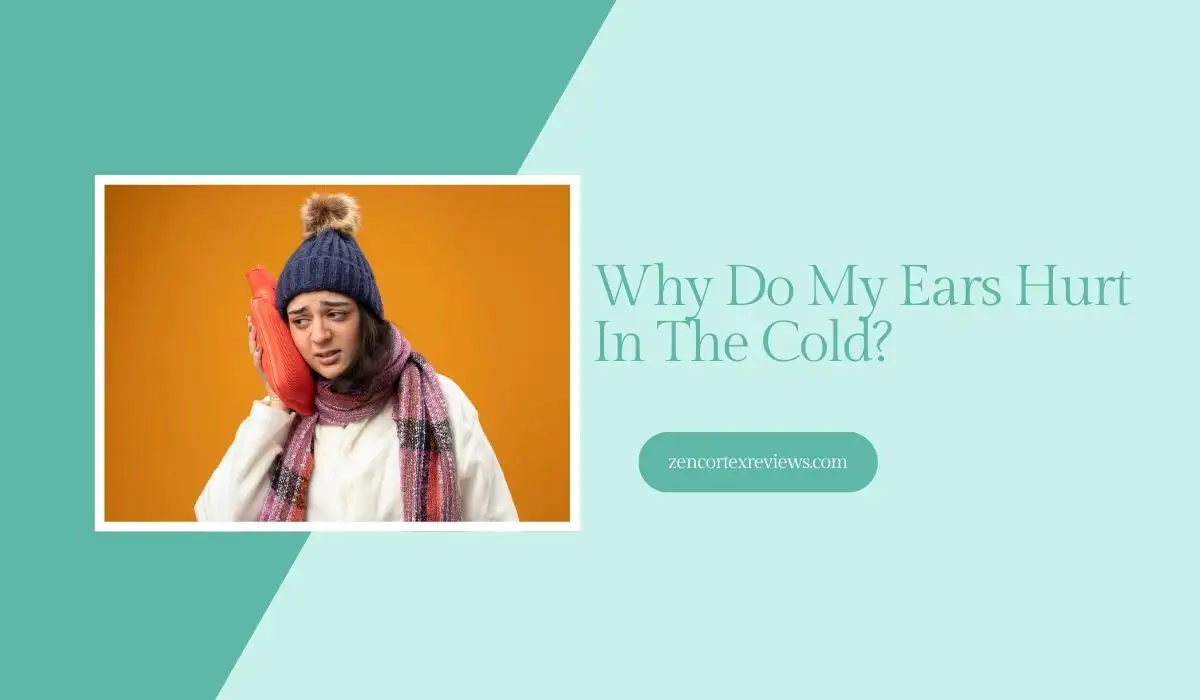Why Do My Ears Hurt In The Cold? Causes And Relief Tips
Explore the chilling mystery behind ear pain in cold weather. Delve into the physiological reasons why low temperatures can cause discomfort and even pain in your ears. Discover practical relief tips from experts to alleviate the discomfort and protect your ears during chilly days. From understanding the science behind cold-induced ear pain to implementing effective remedies, learn how to keep your ears cozy and pain-free this winter.

Disclaimer: Our recommendations are sincere, driven by the products’ benefits. When you buy through our links, we may earn a commission, backing our testing and development at no extra cost to you.
It’s not uncommon to experience ear discomfort or pain during the colder months of the year. While it may seem like a minor annoyance, ear pain can sometimes be a symptom of an underlying condition that requires attention. In this article, we’ll explore the reasons why ears hurt in the cold, potential causes, and effective remedies to alleviate the discomfort.
Is It Normal For Ears To Hurt During A Cold?

It is relatively normal to experience ear pain or discomfort during cold weather or when suffering from a cold. When you have a respiratory infection or cold, the nasal passages and Eustachian tubes (connecting the middle ear to the throat) can become inflamed and swollen.
This inflammation causes pressure buildup in the middle ear, leading to ear pain, fullness sensation, or even temporary hearing loss. The cold air itself can also cause muscles and tissues in the ear to contract, resulting in discomfort. While annoying, this ear pain during colds is common and usually temporary.
Why Do My Ears Hurt In The Cold?
There are several reasons why your ears may hurt or feel uncomfortable in cold weather:
1. Cold Air: Exposure to cold air can cause the muscles and tissues in the ear to contract, leading to discomfort or pain. This is especially true for individuals with sensitive ears or those who have previously experienced ear injuries or infections.
2. Sudden Temperature Changes: Rapid temperature changes, such as moving from a warm indoor environment to cold outdoor air, can cause the Eustachian tubes to constrict and swell, resulting in ear pain and pressure buildup.
3. Dry Air: Cold weather is often accompanied by dry air, which can cause the delicate tissues in the ear canal to become irritated and inflamed, leading to discomfort or itching.
4. Barotrauma: Sudden changes in air pressure, such as those experienced during air travel or rapid altitude changes, can cause barotrauma, a condition where the Eustachian tubes are unable to equalize the pressure between the middle ear and the outside environment, leading to ear pain and discomfort.
Causes Of Ears Hurt During Cold
While cold weather and temperature changes can directly contribute to ear pain, several underlying conditions may exacerbate the discomfort:
1. Ear Infections: Both acute and chronic ear infections can cause significant ear pain, especially during colder weather when the body’s immune system may be compromised.
2. Sinus Infections: Sinus infections can lead to Eustachian tube blockage and increased pressure in the middle ear, resulting in ear pain and discomfort.
3. Allergies: Exposure to certain allergens can cause inflammation of the nasal passages and Eustachian tubes, leading to ear pain and pressure buildup.
4. Temporomandibular Joint Disorder (TMJ): Problems with the jaw joint can sometimes cause referred pain in the ear region, which may be exacerbated by cold temperatures.
5. Swimmers’ Ear: Also known as otitis externa, this condition occurs when water becomes trapped in the ear canal, leading to infection and inflammation, which can cause ear pain and discomfort.
Remedies For Earache Due To Cold
While ear pain can be uncomfortable, several remedies can help alleviate the discomfort:
✅ Over-the-counter Pain Medications: Non-steroidal anti-inflammatory drugs (NSAIDs) like ibuprofen or acetaminophen can help reduce inflammation and relieve ear pain.
✅ Warm Compresses: Applying a warm, damp cloth or heating pad to the affected ear can help relieve pain and promote drainage if there is any fluid buildup.
✅ Decongestants: For ear pain caused by sinus or respiratory infections, decongestants can help reduce inflammation and open up the Eustachian tubes, allowing for better pressure equalization.
✅ Humidifiers: Using a humidifier can help alleviate ear discomfort by adding moisture to the air and preventing the tissues in the ear canal from becoming overly dry and irritated.
✅ Ear Drops: Over-the-counter ear drops containing ingredients like glycerin or carbamide peroxide can help relieve ear pain by reducing inflammation and promoting drainage. Try ZenCortex ear drops to soothe painful, inflamed ears from cold weather exposure. Their natural formula reduces inflammation while moisturizing dry, irritated ear canals. These gentle drops create a protective barrier against further cold air discomfort.
✅ Chewing Gum or Yawning: These actions can help open up the Eustachian tubes and equalize pressure in the middle ear, potentially relieving ear discomfort.
Closing Thoughts
Ear pain during cold weather can be a nuisance, but understanding the underlying causes and taking appropriate remedies can help alleviate the discomfort. While cold air, temperature changes, and dry conditions can contribute to ear pain, it’s essential to be aware of potential underlying conditions that may require medical attention.
By taking preventive measures, such as avoiding extreme temperature changes, using humidifiers, and protecting your ears from cold air, you can reduce the likelihood of experiencing ear pain during the colder months. However, if the discomfort persists or worsens, it’s always best to consult with a healthcare professional for proper evaluation and treatment.
Remember, ear pain should not be ignored, as it could be a sign of a more serious condition. By addressing the issue promptly and seeking appropriate remedies, you can find relief and prevent further complications.
References
Lindsay Martinez
Lindsay Martinez, Au.D., is a licensed audiologist with over 10 years of experience in the field of hearing healthcare. She earned her Doctor of Audiology degree from the University of California, Los Angeles, and currently practices at Martinez Hearing Clinic, a leading audiology practice in the San Francisco Bay Area. As an expert in diagnosing and treating a wide range of hearing disorders, Dr. Martinez specializes in fitting advanced hearing aids and assistive listening devices. She is a fellow of the American Academy of Audiology and has published numerous peer-reviewed articles on topics such as noise-induced hearing loss and the latest innovations in hearing technology. Passionate about patient education, Dr. Martinez is committed to helping her patients improve their hearing and overall quality of life.
